Netanyahu Discusses Iran, Saudi Arabia With White House's Sullivan

Israeli Prime Minister Benjamin Netanyahu Thursday met US National Security Advisor Jake Sullivan and discussed Iran as well as expanding the Abraham Accords.

Israeli Prime Minister Benjamin Netanyahu Thursday met US National Security Advisor Jake Sullivan and discussed Iran as well as expanding the Abraham Accords.
Hosting his first senior member of President Joe Biden's administration Netanyahu said they had discussed prospects for a diplomatic breakthrough between Israel and Saudi Arabia.
Since nuclear talks with Iran came to a deadlock last September, the US has increased closer political and military contacts with Israel.
Sullivan also heard from the Palestinians that their hopes of achieving statehood - long a Riyadh condition for normalizing relations with Israel - were being endangered by Israeli actions.
Netanyahu has pledged to forge Saudi ties that would round out normalization pacts he signed with the United Arab Emirates and Bahrain in 2020 dubbed the "Abraham Accords".
Their discussions were followed by a virtual meeting among Sullivan and his Israeli, Emirati and Bahraini counterparts. They discussed cooperation in areas such as emerging technology, regional security and commerce, according to a joint statement.
Israel and Persian Gulf allies share fears over Iran, but Netanyahu's return at the head of a religious-nationalist coalition government has stoked concern of an escalation in the decades-old conflict with the Palestinians.
Hosting Sullivan in the West Bank hub city of Ramallah, Palestinian President Mahmoud Abbas urged US intervention.
On Wednesday, Saudi Arabia's foreign minister Prince Faisal bin Farhan Al Saud urged Israel's new government to engage seriously on resolving the conflict.
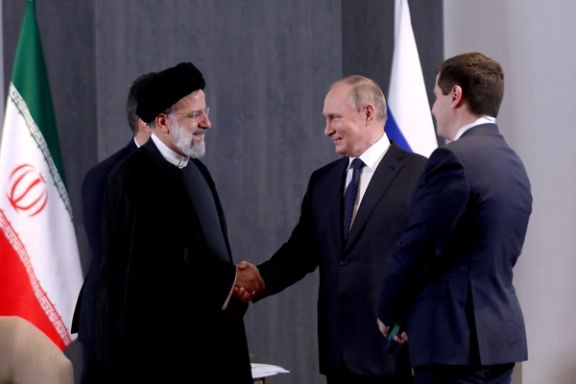
The Kremlin says Russian President Vladimir Putin held a phone conversation with his Iranian counterpart Ebrahim Raisi on Thursday, the second in nine days.
In a brief readout of the call, it said Putin and Raisi discussed the situation in Syria - where Moscow and Tehran both backed President Bashar al-Assad in a long-running civil war - and cooperation in transport and energy.
Russia, Turkey and Syria have launched diplomatic efforts for an agreement to improve Ankara-Damascus relations, after years of tensions during the Syrian civil war, but Iran has not been invited to take part.
Turkey has been the primary backer of Syria's opposition for more than a decade of war, while Russia has backed the Syrian government.
The statement by the Kremlin on Putin-Raisi talks made no reference to the war in Ukraine.
Iran has taken on greater importance as a partner for Russia since Putin's invasion of Ukraine last February triggered waves of Western sanctions against Moscow.
Since early October, the energy infrastructure across Ukraine has been attacked repeatedly by Russian missiles and drones it acquired from Iran, resulting in dozens of casualties and disruption in water and power supplies.
Iran has denied supplying weapons to Russia for its war in Ukraine, but foreign minister Hossein Amir-Abdollahian after earlier denials acknowledged in early November that Tehran had supplied drones to Moscow “months before” the Ukraine war, leaving it vague if these were used in the war.
The United States and its European allies have strongly objected to Iranian drones for Russia, imposing sanctions and keeping nuclear talks with Tehran dormant.
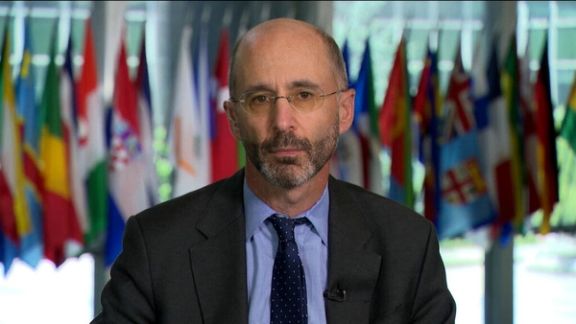
Iran's mission to the United Nations has denied reports regarding a meeting of US special envoy for Iran with the ambassador of the Islamic Republic to the UN.
Iran International had earlier reported exclusively that Robert Malley and Saeed Iravani had held three meetings and the US State Department did not deny the report after being specifically asked.
In response to questions submitted by Iran International on January 17, State Department spokesperson Ned Price said, “We have the means to deliver specific and firm messages to Iran when it is in America’s interest to do so.”
Iran International had asked the DoS that according to information it obtained, US Special Representative for Iran Robert Malley met with Iran’s ambassador to the United Nations in New York, Saeed Iravani, “at least three times in the last two months.”
In its response, the DoS did not deny or confirm Malley’s possible meetings with Tehran’s envoy but underlined that the US has its channels to communicate messages to the Iranian side.
However, on Thursday, Iran's mission to the United Nations announced, "it has not held any negotiations with any of the US officials."
"Iran's ambassador to the United Nations meets with various political and academic figures, but he has not had any negotiations with American officials," ISNA news agency quoted Iran’s mission as saying.
If Malley did meet Iravani face-to-face, it would be the first reported direct meeting between US and Iranian diplomats since the Biden administration assumed office and offered talks to revive the JCPOA. Iran has consistently refused direct talks with the United States.
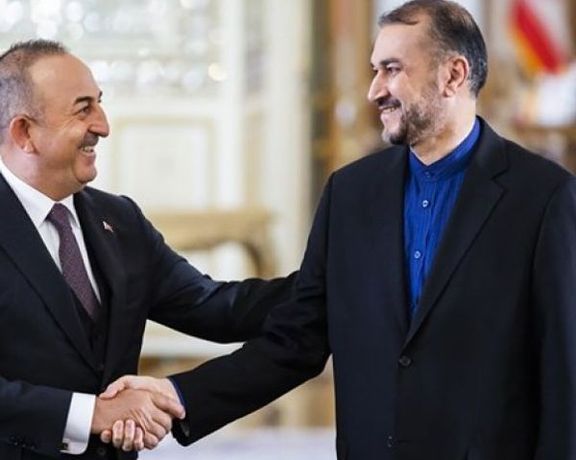
Four people, detained in Turkey on charges of abducting opponents of the Islamic Republic on Turkish soil, have been released after negotiations of the two countries in Ankara.
The release of prisoners came following the visit of Iranian Foreign Minister Hossein Amir-Abdollahian to Turkey this week.
The four were arrested last year on charges of complicity with the security organizations of the Islamic Republic to kidnap an opponent of the regime in Turkey.
On Tuesday, a Turkish court ordered them released on condition of being banned from leaving the country.
Morteza Soltan-Sanjari, the only Iranian prisoner in this case, was transferred to prison until the next trial.
In February 2022, Turkish Intelligence announced that it had arrested members of a team affiliated with the Islamic Republic who had organized several kidnappings.
According to Turkish media, the team that organized the kidnappings included a Turkish state prosecutor, the owner of a defense company, a retired Turkish army colonel, and several non-commissioned officers.
Oda TV, an online news portal, claimed the target of the kidnappers were Moahammad Rezaie and Shahnam Golshani, both opponents of the Iranian regime.
This is not the first time Iranian regime agents try to kidnap and kill its opponents in Turkey. In 2021, Turkey released Mohammad Reza Naserzadeh, who had been arrested by Turkish intelligence in connection with the killing of Masoud Molavi, a former Iranian defense official, in Istanbul in 2019.
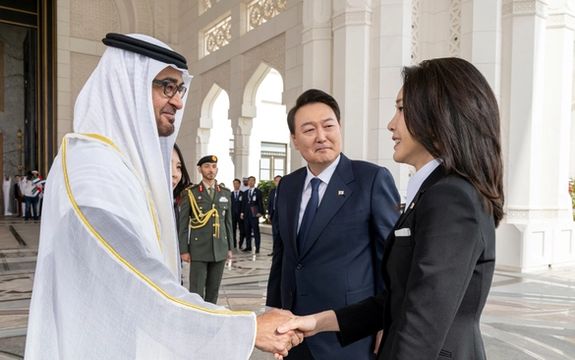
Tehran and Seoul have summoned each other's ambassadors over President Yoon Suk-yeol's comment that the Islamic Republic is the enemy of the United Arab Emirates (UAE).
Yoon, speaking with South Korean troops stationed in Abu Dhabi early this week, said South Korea and the UAE are under "very similar" circumstances, each facing North Korea and Iran as "the enemy, biggest threat."
His remarks prompted a rare spat between Seoul and Tehran, at a time when relations have already been testy over frozen Iranian funds in South Korea and suspected arms dealings between Iran and North Korea.
Iran's deputy foreign minister on legal affairs, Reza Najafi, summoned Yun Kang-hyeon, the South Korean ambassador on Wednesday to protest against Yoon's "interventionist remarks," the official IRNA news agency said.
Najafi "pointed to the deep-rooted and friendly relations of the Islamic Republic of Iran with most of the Persian Gulf countries," IRNA said, describing Yoon's comment as "interfering" and "undermining peace and stability in the region."
South Korea's foreign ministry retaliated on Thursday by calling in Iran's ambassador to Seoul to explain President Yoon Suk Yeol's remarks as words of "encouragement" to the troops.
The incident came after a similar unfriendly gesture by China’s President XI Jinping in December during his visit to Saudi Arabia. After he met with the Gulf Cooperation Council, a joint statement was issued in which China endorsed UAE’s claims on three Iranian islands in the Persian Gulf.
This led to serious controversy in Iran, where critics slammed the government for its weakness to allow China, which is touted as an ally, to support an anti-Iranian resolution.
A similar situation emerged with Shia-dominated Iraq, where the prime minister used the term “Arabian Gulf” for the Persian Gulf angering Iranians.
The cumulative impact of these incidents, pundits in Iran argued, shows Tehran’s growing isolation and loss of diplomatic leverage.
Yoon's office said his comment was meant to encourage the soldiers. Seoul's foreign ministry said on Tuesday it has offered explanations to Tehran and its commitment to developing bilateral ties remains unchanged.
Opposition lawmakers slammed the incident as a "diplomatic disaster," and some members of Yoon's own party also said he should have been more careful.
Najafi also accused South Korea of pursuing an "unfriendly approach" toward Iran, singling out its frozen funds.
"South Korea's failure to take effective action to solve the mentioned problems would lead Iran to review its relations," Najafi said, according to IRNA.
Iran has repeatedly demanded the release of some $7 billion of its funds frozen in South Korean banks under US sanctions.
Washington re-imposed sanctions on Tehran in 2018 after then President Donald Trump pulled out from Iran's 2015 nuclear accord with six major powers, under which it agreed to curb its nuclear programmes in return for UN-imposed sanctions relief.
South Korea was once one of Iran's biggest crude buyers in Asia, and both sides have been in talks over ways to unfreeze the funds and resume oil trade, after negotiations to revive the 2015 deal kicked off in 2021. However, the talks stalled in September and meanwhile tensions grew between Iran and Western powers over its deadly crackdown on protesters and delivery of killer drones to Russia.
With reporting by Reuters
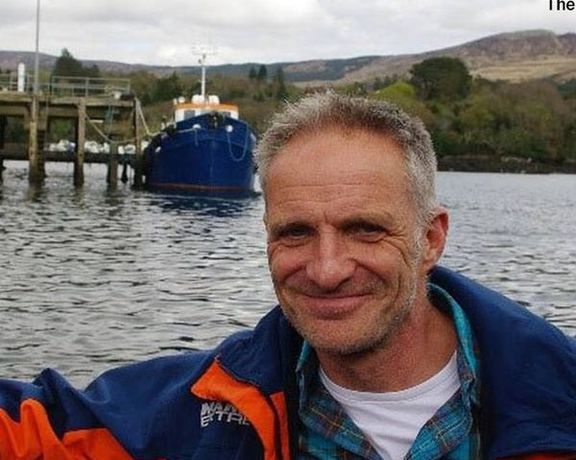
A French diplomatic source says the health condition of the Irish-French prisoner Bernard Phelan, who is behind bars in Iran, is deteriorating.
Bernard Phelan was arrested on October 3 during anti-regime protests that have swept the country following the death of Mahsa Amini in police custody on September 16.
His family says he has been on hunger strike since the beginning of the New Year and has even stopped taking medication for a heart condition. He is also refusing water.
Bernard Phelan, 64, who is a travel consultant has been accused by the Islamic Republic of "propaganda against the establishment" and "photographing police and security officers". He is imprisoned in Vakil Abad prison in Mashhad northeast of Iran.
"He is showing serious signs of physical and psychological exhaustion" added the official, saying despite repeated requests of the governments of France and the Republic of Ireland to release him for medical reasons, the Islamic Republic has refused to do so.
Phelan’s sister, Caroline Masse-Phelan, told AFP Wednesday that her brother was an innocent man detained for reasons "beyond our comprehension."
She said his health condition meant he had to be released urgently.
"It's a matter of days. He's an innocent man caught in the middle of I don't know what. He loves Iran, he is 64, sick, and wants to go home," she said.
"I think he is part of a group of Europeans imprisoned for political reasons ... of which I know nothing," his sister added. "We have nothing to do with this story."
Several foreigners visiting Iran have disappeared during the nationwide protests, confirming earlier reports that the Islamic Republic is taking foreign citizens hostage.